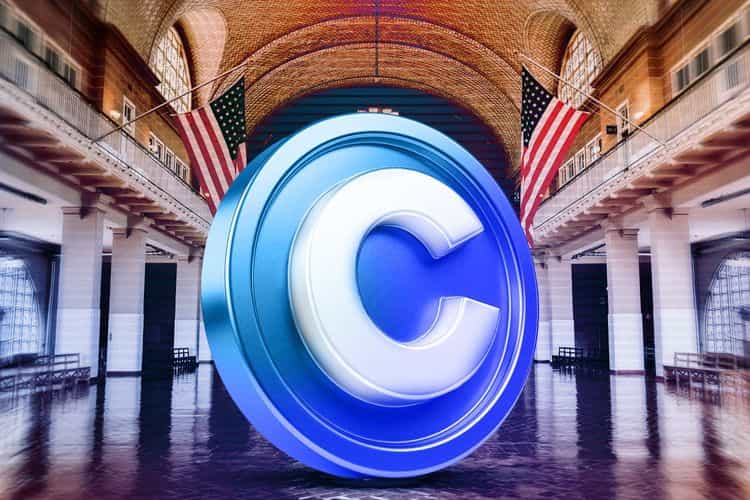How Coinbase is Leading the Charge in Regulated Crypto Exchanges?


The cryptocurrency industry has evolved from a fringe innovation into a trillion-dollar global marketplace. Yet, with growth comes complexity: governments demand tighter oversight, investors require stronger protections, and institutions only engage when regulatory clarity is present. In this landscape, Coinbase has emerged as the leading regulated crypto exchange, shaping not only how digital assets are traded but also how trust in this industry is built. This article explains why regulation matters, how Coinbase has set the standard, and what its future vision means for the global crypto ecosystem.
Why regulation matters in the crypto exchange industry?
The crypto industry has been marked by explosive innovation, but also volatility and uncertainty. Regulation serves as a bridge between rapidly evolving technology and stable financial infrastructure. Without it, both retail and institutional participants face serious risks.
Key challenges of unregulated crypto trading
Unregulated platforms have historically been plagued by major issues:
These challenges undermine credibility and deter long-term adoption.
How regulatory compliance builds trust among investors?
Regulation changes the equation by providing oversight and accountability:
For users, regulation signals security, legitimacy, and a higher likelihood of consistent service, factors essential for mainstream adoption.
How Coinbase sets the standard for regulated crypto exchanges
Coinbase has not only complied with regulations but actively positioned itself as a model exchange. Its approach integrates compliance and security into the core of its business.
Coinbase’s approach to compliance and security
Coinbase operates with licenses in nearly all U.S. states and adheres to strict federal requirements. It runs comprehensive compliance programs that evaluate new asset listings, conduct risk assessments, and enforce strict transaction monitoring. Independent audits and continuous reporting strengthen credibility further.
Unlike many competitors, Coinbase doesn’t treat compliance as a cost; it views it as a foundation for long-term trust.
Licenses and regulatory approvals that make Coinbase trustworthy
Coinbase holds some of the most important licenses in the world of crypto exchanges:
Together, these approvals make Coinbase a benchmark for how exchanges can operate transparently under global regulatory frameworks.
Features that make Coinbase a leader in the crypto market
Licenses are important, but features determine whether users choose an exchange. Coinbase’s mix of security and usability has helped it dominate the regulated exchange space.

Advanced security measures to protect user funds
Coinbase implements multi-layered security practices, such as:
These proactive security protocols provide both retail and institutional clients with confidence that their assets are being protected with the highest levels of security and regulatory compliance.
User-friendly interface and accessibility for beginners
Regulated exchanges are often criticized for being overly complex. Coinbase, however, has invested heavily in making its interface intuitive:
By combining security with accessibility, Coinbase makes regulated crypto trading approachable for everyone.
Coinbase’s role in shaping crypto regulations worldwide
Coinbase is not just a participant in regulatory systems; it is also a contributor to shaping them.
Partnerships with governments and financial institutions
The exchange regularly engages with regulators and policymakers, submitting whitepapers, research, and policy recommendations that influence global crypto standards. Coinbase also collaborates with traditional financial institutions to design compliant custody solutions, stablecoin structures, and institutional products.
This proactive role means Coinbase is helping define how regulation evolves globally, not just reacting to it.
Future of regulated crypto exchanges and Coinbase’s vision
As regulation tightens worldwide, exchanges that prepare in advance will maintain leadership. Coinbase has already begun investing in this future.
How Coinbase is preparing for upcoming regulatory changes
Coinbase anticipates new rules in areas such as:
By scaling its compliance teams and investing in advanced monitoring tools, Coinbase is ready for these transitions.
Innovations and future plans to expand global compliance
Looking forward, Coinbase is exploring innovations such as:
To sum up
Coinbase’s commitment to regulation, security, and accessibility has positioned it as the leading example of a regulated crypto exchange. By embracing oversight, building user trust, and actively engaging in global regulatory conversations, Coinbase has proven that compliance can coexist with innovation. For the industry to move toward mainstream adoption, more exchanges will likely need to follow this model.
Resources
Frequently asked questions
Check out most commonly asked questions, addressed based on community needs. Can't find what you are looking for?
Contact us, our friendly support helps!
What is Coinbase’s BitLicense, and why is it important?
The BitLicense is a regulatory license issued by New York State that sets high standards for consumer protection, AML compliance, and cybersecurity. It is one of the toughest licenses in crypto and signals strong regulatory credibility.
How does Coinbase ensure user funds are safe?
Coinbase protects funds through cold storage, segregation of customer assets, continuous monitoring for suspicious activity, and adherence to cybersecurity frameworks required by regulators.
What role does Coinbase play in global regulation?
Coinbase participates in regulatory discussions worldwide by submitting policy recommendations, cooperating with agencies, and collaborating with financial institutions to design compliant crypto services.



